1911 - 1915
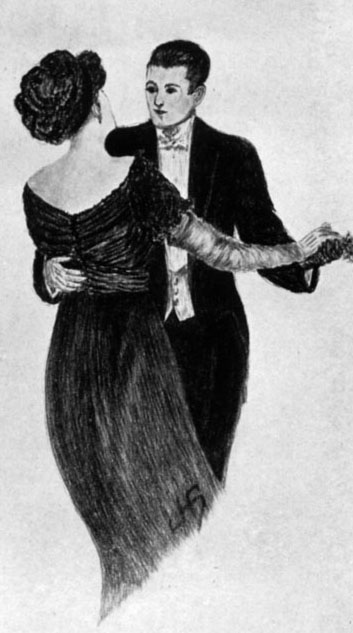
1911 - 1915

|
1911
|
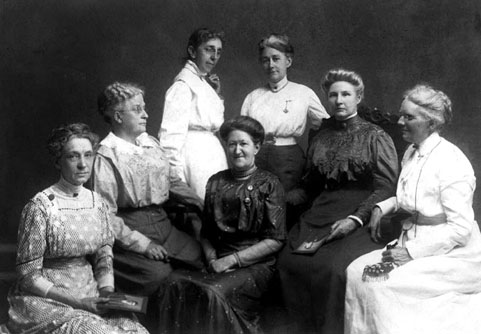 |
Institute Class of 1871 University Archives |
| 1912 |
N.B. N.B. 1912 L'Agenda |
|
| 1912 |
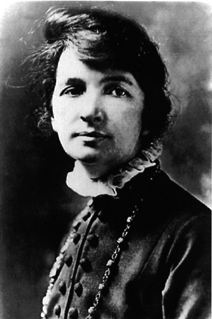 |
Margaret Sanger, an author and social reformer, gives up nursing to devote herself full-time to the cause of birth control, a term she is credited with originating. In 1914 she flees to Europe when indicted for sending obscene materials through the mails. She returns the following year and opens the first U.S. birth control clinic in Brooklyn. In 1921, she establishes the American Birth Control League which later mergers with other groups and becomes the Planned Parenthood Federation in 1942. Her Heritage |
| 1912 |
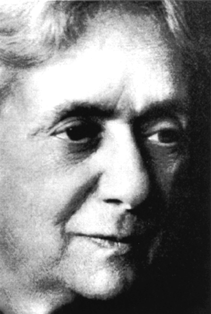 |
Henrietta Szold, a teacher who studied Hebrew
and the Talmud with her father, forms the Hadassah Chapter of Daughters
of Zion. As president, she travels widely to organize chapters of Hadassah.
From its creation in 1933, Szold serves as director of the Youth
Aliyah, an agency created to rescue Jewish children from Nazi Germany and
bring them to Palestine. Her Heritage |
| 1912 |
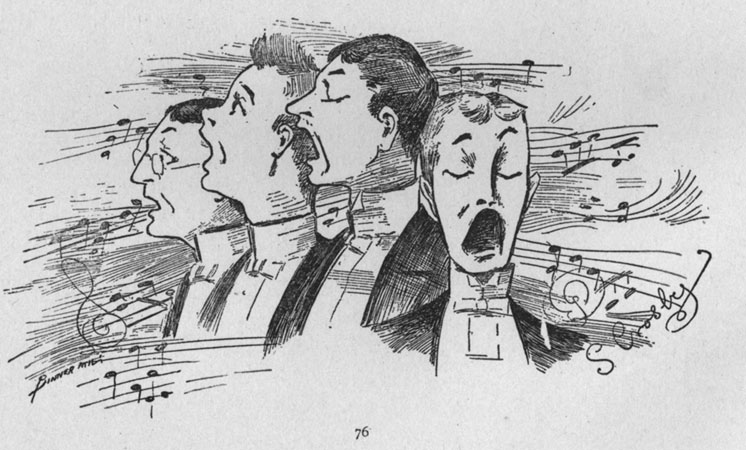 |
When They Serenade the Sem "Sound asleep and dreaming, too, "What is that clapping for, I wonder, "It's stopping now, and all seems still, "What's that I hear? A mandolin-- "They've stopped now. That girl's too smart-- "Wish they'd play more. How the time has flown! "They're pretty nearly up the hill, L'Agenda 1912 |
| 1913 |
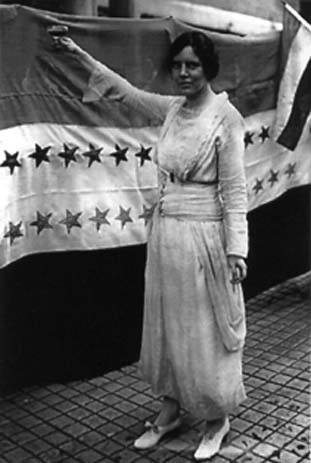 |
Alice Paul and other militants withdraw from the National American Woman Suffrage Association because she considers their politics too timid. She forms the Congressional Union for Woman Suffrage, which in 1917 merges with another group to become the National Woman's Party. She serves prison terms in England and the U.S. for her agitation for women's suffrage. In 1923 she drafted and has introduced into Congress the first Equal Rights Amendment for women. Her Heritage |
| 1914 |
The Bucknell Institute offers to young women three courses of study: the General, the Classical, and the Scientific. The General Course extends over five years leading to a diploma which admits to advanced standing in college. Students are admitted to advanced standing, if upon examiniation they are found to have satisfactory knowledge of the branches which the class they propose to enter has already completed. Credentials are accepted in the studies of the First, Second and Third Years from schools whose curricula are equivalent to that of the Bucknell Institute; also from accredited private teachers, in studies which are continued after entrance. The Classical and the Scientific Courses offer thorough preparation for the Freshman Class in College. Graduates of accepted high schools, with a four years' Course, are admitted to the General Course and graduated with diploma and medal upon completion of the year's work. This work will be taken under college professors, and will be accepted for a college degree if the student wishes to pursue farther study. This arrangement is designed to meet the needs of the large number of young women who after graduating from high school wish to pursue some special line of work, but for various reasons do not wish to take a four-year College Course. The Bucknell Catalogue 1914 |
|
| 1914 |
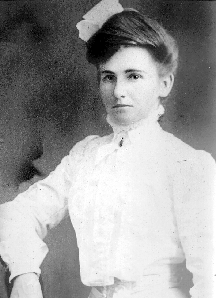 |
Lona Sholly, a member of the Bucknell University support staff for 20 years and member of the Women's Resource Center Advisory Board, recalls a family story: Annie Claire Snyder Rife, Lona's grandmother, born in 1903, was a student at the Female Institute. She was in a special program for one semester, which was called a select studies' programs. She took arithmetic, geology and grammar. Her aspiration was to be a doctor. She was told her health wasn't up to it, so she settled to teach school for a period of time. Ms. Snyder would walk to Watsontown to get the trolley to Lewisburg. She was early one day, so she decided to walk to Milton. Once she got to Milton there was no way that she was going to pay 10 cents to ride the trolley. That day she walked from Watsontown to Lewisburg. This was a distance of about 12 miles. Lona feels that she must have been terribly early. WRC Interview, 8/95 |
| 1914 | 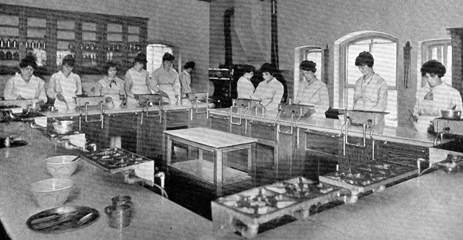 |
In the fall, a new two-year program in domestic science is introduced and continues through 1917. Students enrolled in this program are recognized as students in the College. In January 1917, the trustees approved a four-year program in household economics leading to the degree of Bachelor of Science, and they give this program dignity by establishing it as a division in the program of General Science. Degrees earned in this new division are awarded for the first time in June 1919. Oliphant |
| 1915 |
L'AGENDA 1915
Although it is by no means a perfect system, yet it has made rapid strides towards the pure democracy it is intended to exemplify. Already its influence has been felt in the general spirit and enthusiasm of the girls as well as in their deeper sense of individuality and sympathy. They are no longer the laggards but have felt the call of progress. They are pressing forward with eager steps toward the ultimate ideal of a well-rounded education -- a perfect woman, equipped mentally to meet the various crises in her life with honor to herself and a keen sense of obligation to her fellow-creatures. 1915 L'Agenda |